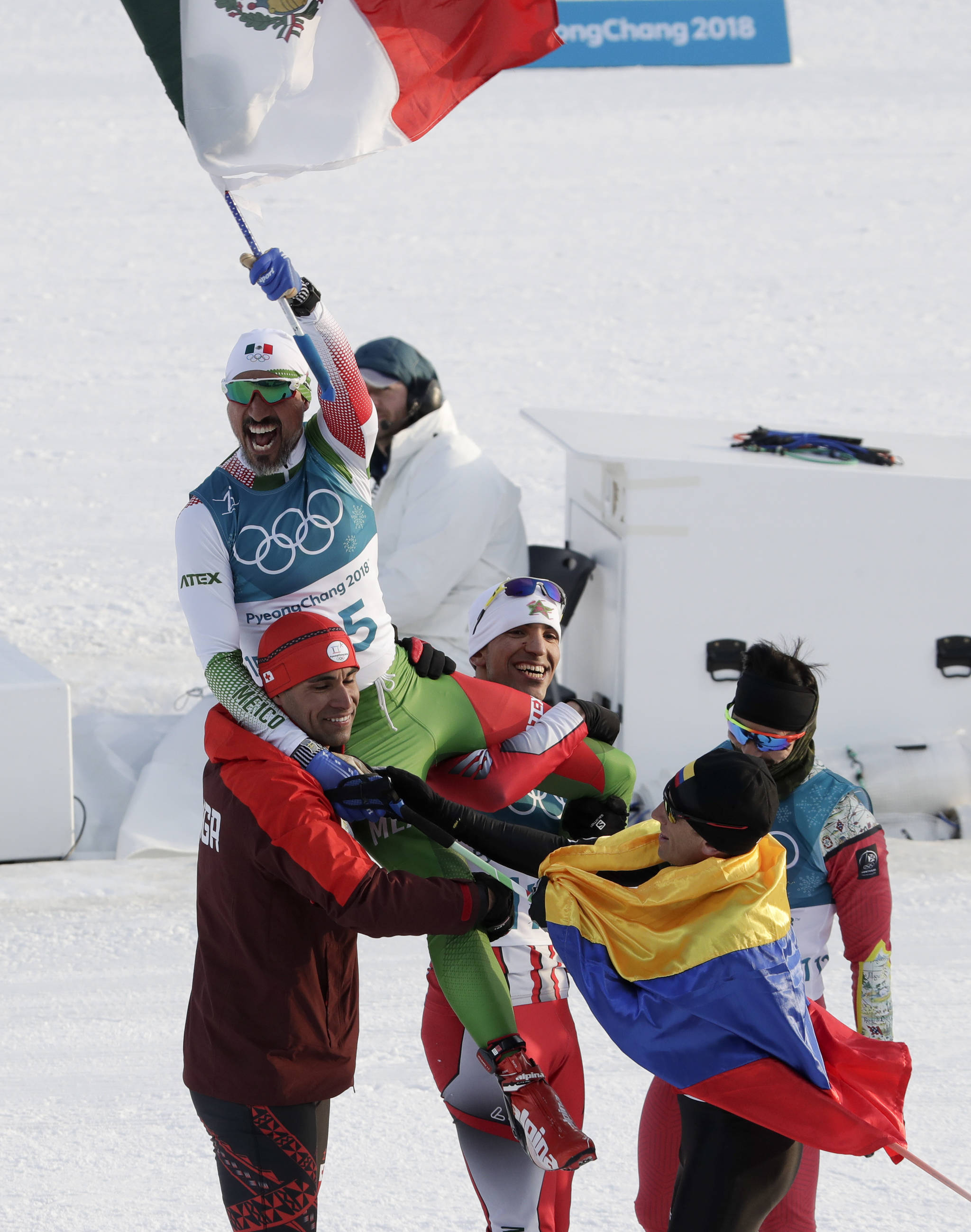In early January 2017, 2001 Soldotna High School graduate Andy Liebner was thinking about taking on an athlete named German Madrazo and trying to get him qualified for the Olympics.
Liebner watched Madrazo, now 43, ski at U.S. Nationals and get pulled out of two of three races for being too slow.
After the performance, Liebner, now of Cheboygan, Michigan, sat in the car and gave Madrazo a frank assessment. Liebner detailed to Madrazo, who lives in McAllen, Texas but hoped to qualify for his native Mexico, just how hard it would be to earn the right to ski in the Pyeongchang Winter Olympics in February 2018.
The prospective coach then asked the athlete if he wanted to drive back to Michigan, learning to ski along the way.
“I said, ‘Hell yea, I want to drive back with you to Michigan,’” Madrazo said.
With that, Liebner began to admire Madrazo as an athlete and a person. Starting late Thursday night in Alaska, the rest of the world did, too.
Madrazo finished last of the 116 competitors who finished the 15-kilometer freestyle at the Olympics, but the way he did it had him burning up social media and newspapers across the world.
Upon reaching the homestretch, he grabbed the Mexican flag and deliberately skated to the finish, beaming.
Once there, fellow back-of-the-packers Pita Taufatofua of Tonga, Sebastian Uprimny of Columbia, Kequyen Lam of Portugal and Samir Azzimani of Morocco hoisted Madrazo up on their shoulders as if he had just won the gold medal.
Then Switzerland’s Dario Cologna, who had finished almost 26 minutes ahead of Madrazo to win the event, came over to shake hands with the group.
Serving as the Mexican ski coach, Liebner was still actually making his way back to the stadium when this all happened. But he heard the roars from the crowd and had a pretty good idea what was happening.
“He’s become famous amongst all athletes around, from his personality of supporting everyone in their events and even his own competitors,” Liebner texted from Pyeongchang. “He’s always had the heart of what we all believe an Olympian has to commend everyone from everywhere to do the best they can.
“I’m so proud on many levels. This was one athlete who had no chance at the gold medal, but won the gold in the hearts of all the viewers and his own competition.”
Liebner had more than a little to do with Madrazo’s moment that caught the imagination of the world.
For starters, in just a little over a year, Liebner taught Madrazo to ski well enough to qualify for the Olympics. Before January 2017, Madrazo had extensive experience in endurance sports like swimming, cycling and running, but no experience on skis.
Liebner also made sure Madrazo was set up with the Mexican flag, just like the coach had made sure his athlete Roberto Carcelen of Peru had a flag when he finished last in the 15K classic in Sochi in 2014.
“We had a flag prepared just like with Roberto,” Liebner said via phone. “We wanted him to be able to show his country he was proud to be there.”
Carcelen had also shook hands with Cologna, because Cologna also won that race in 2014.
Liebner said the 15K cross-country races attract a lot of athletes from nontraditional countries, with the finishing list of 116 athletes Thursday night topping every other event at the Olympics.
Unfortunately, there was one other similarity between Madrazo and Carcelen. Just as Carcelen skied injured in 2014, Madrazo took a fall in warmups and hurt his ankle.
“He’s not one to complain and did the race anyway,” Liebner said. “It was sore and he was limping all night.”
The coach and athlete were hoping for fifth to 10th from last but came up short.
Far from the spotlight, Liebner had a nice Olympic moment of his own. He was out coaching in what he calls “no man’s land,” where there are no cameras or spectators.
Liebner noticed Miha Simenc of Slovenia had snapped a pole. Liebner happens to be the founder of the United States Ski Pole Company, so he got Simenc a pole to aid in an 88th place finish.
“It’s a Honey Badger, a unique pole with a bigger diameter,” Liebner said. “It doesn’t have the normal markings. I know he was looking at it and thinking, ‘What the heck is this thing?’ All it had was a stamp that said, ‘Made in the USA.’”
Liebner said Madrazo loved the Olympic experience so much that he wants to shoot for Beijing in four years. Liebner would like to continue to coach Madrazo to some degree, but also is feeling out doing some coaching for a bigger nation, since many coaches retire after an Olympic cycle.
“It’s hard to find coaches with the experience, education and availability to travel,” Liebner said. “I’m interested in that, but I also have my company as my primary obligation.”

